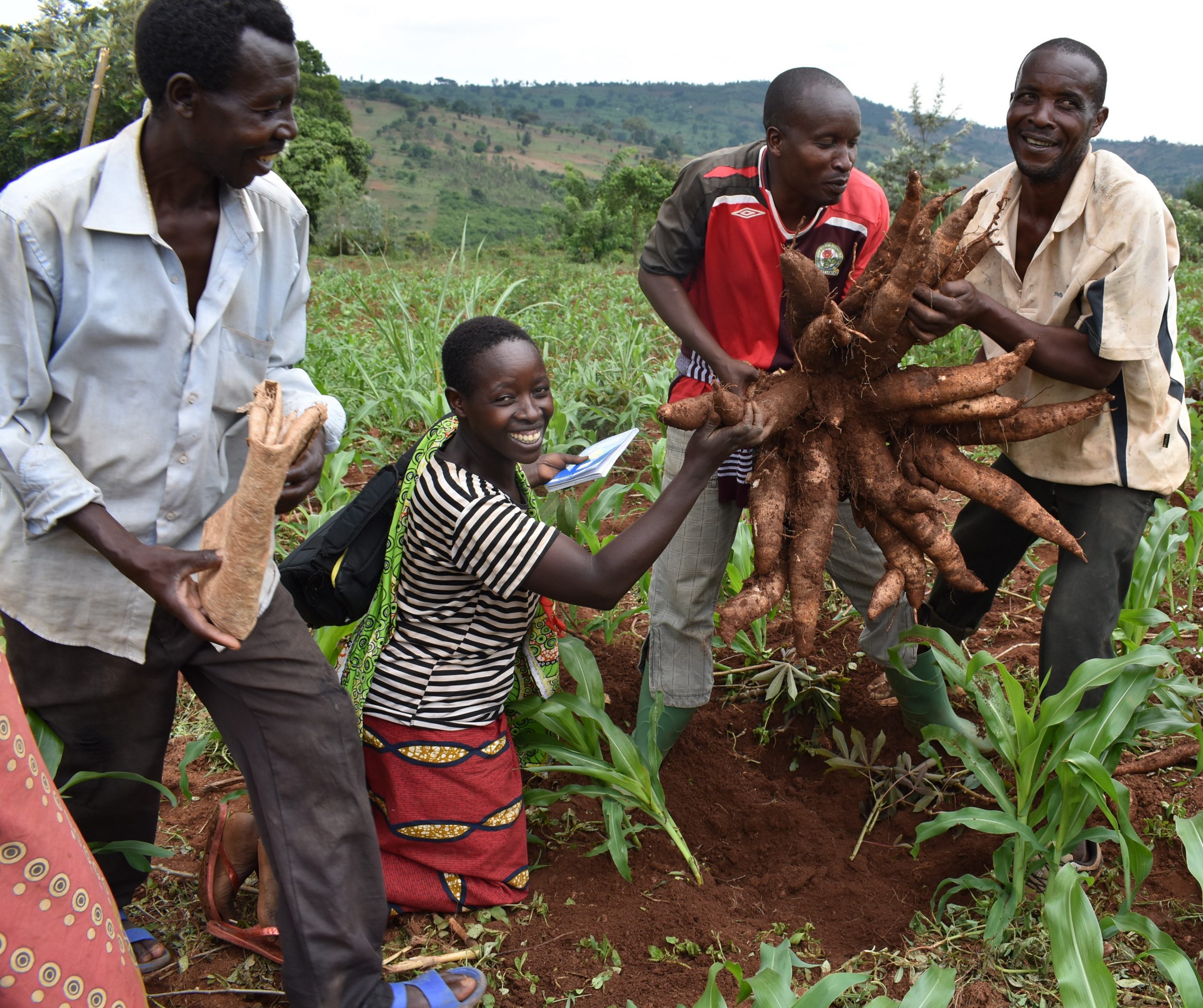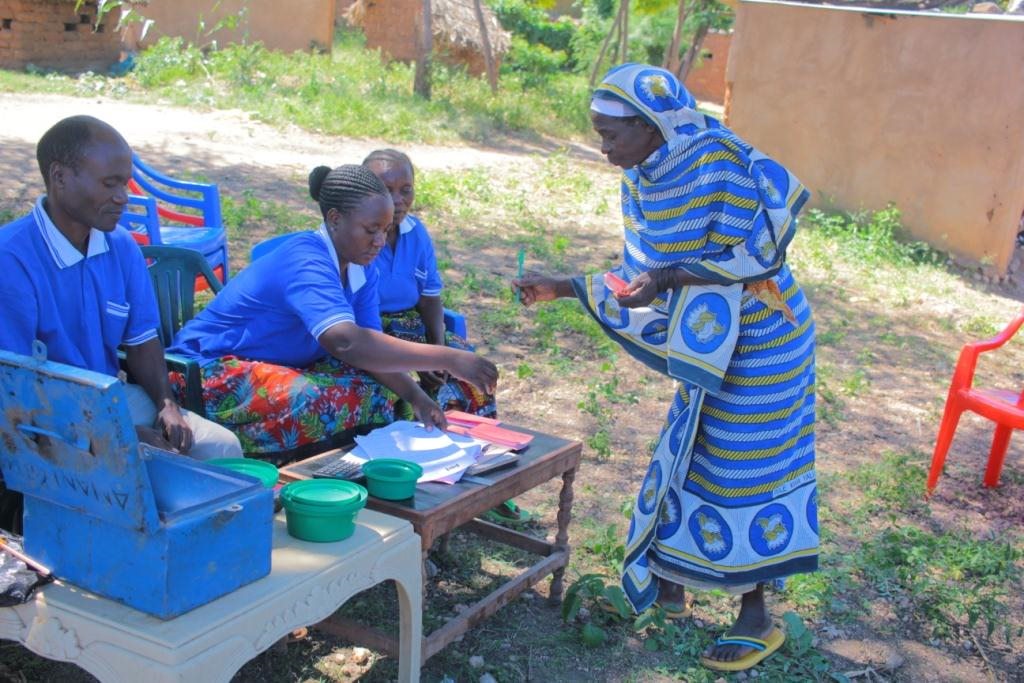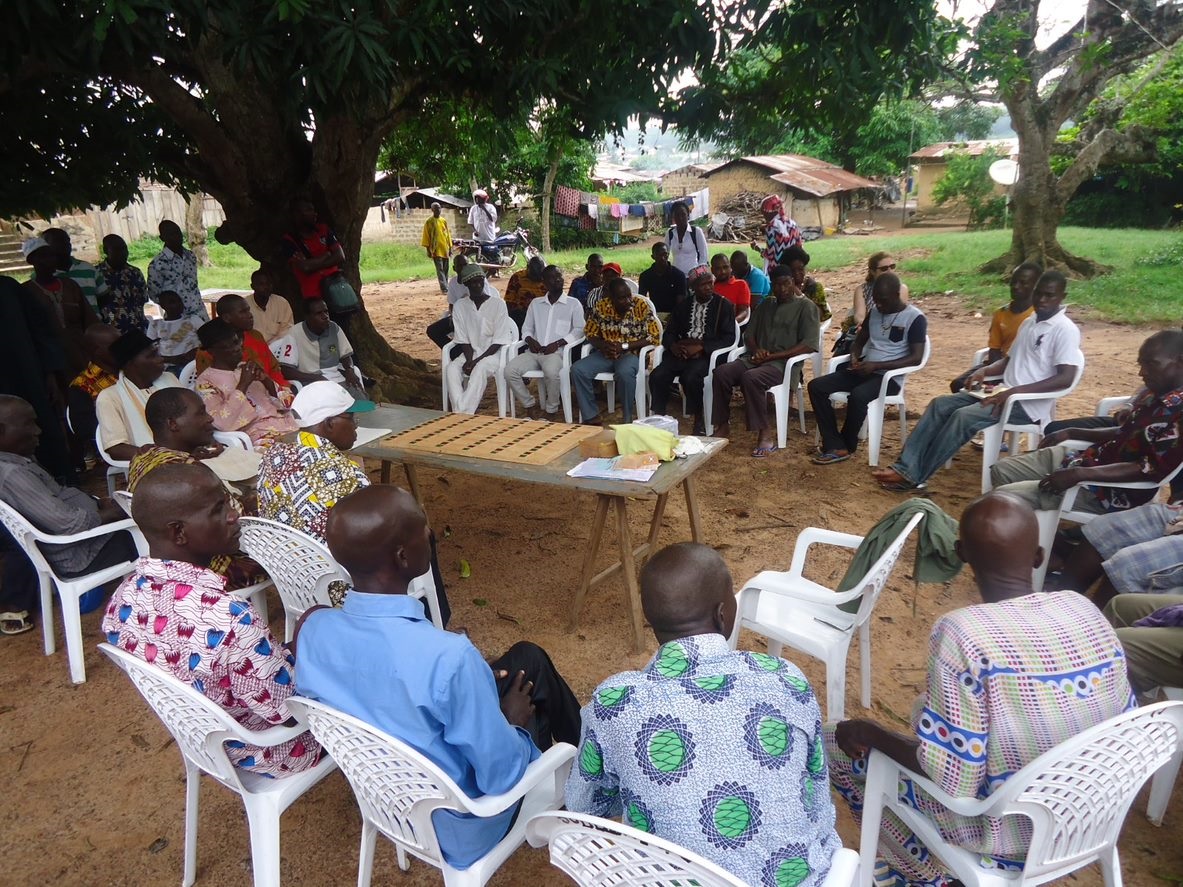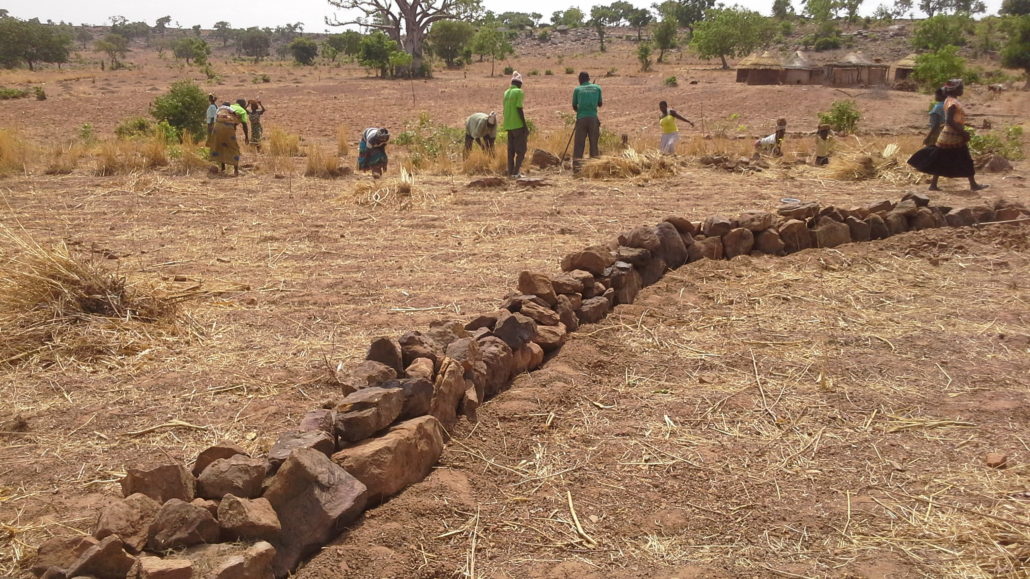Our fields of action
In the service of the common good
Inades-Formation works on four (4) fields of action which are: Food systems based on family farming , community microfinance , inclusive governance and resilience to climate change .
Family Farming Food Systems
Since its general assembly in 2013, Inades-Formation has taken a position in favor of food sovereignty and has chosen to promote food systems based on family farming .
Food systems based on family farming produce and make accessible food resources that are healthy for all, produced according to methods of sustainable and responsible exploitation of natural resources. They take into account the well-being and dignity of producers, processors, traders, consumers, rural and urban, men and women. They favor self-determination and promote the redistributive local economy.
Family farming is a sustainable solution in a world where nearly 811 million people suffer from hunger and malnutrition (2021 estimates), paradoxically including small farmers and

women farmers victims of the global system based on agro-industry and the search for profit and the grabbing of common goods by a minority. Read more…
Community microfinance
Inades-Formation works alongside disadvantaged populations, particularly rural populations, to find solutions allowing them to access financial savings and credit services. Indeed, these populations do not have access to conventional banking services and classic microfinance, the conditions and service offers of which are beyond their reach.
Thus, among these solutions, is the establishment of self-managed community microfinance structures in a spirit of financial solidarity, making it possible to mobilize savings at the local level, grant loans at a lower cost and offer various other financial services.

Inades-Formation has set up a microfinance model called the Solidarity and Development Fund (Fonsdev) that it experiments with the communities in which it operates. He is also experimenting with GECs and other community microfinance products. Read more…
Inclusive governance
For the past two decades, the countries of Africa south of the Sahara have embarked on the path of decentralization and local development. This should lead to the establishment of decentralized local communities with a view to shared management of local affairs by the State and civil society.
The observation is that the entrenchment of the development of democracy, the establishment of participatory development management, the emergence of active citizenship, the stimulation of local development and the self-promotion of populations do not have not yet systematically had their place. This favors the persistence of major challenges to be overcome, including rampant poverty, food insecurity, famine, climate change, degradation of natural heritage, financial crises and

energy, soaring prices of agricultural products (especially food), the privatization of living organisms, etc. Inclusive governance is essential to build societies for equitable development and reduce social inequalities.
Thus, by investing in the field of inclusive governance, Inades-Formation promotes the implementation of mechanisms that guarantee good living together at the level of local authorities and interdependence between them. Read more…
Resilience to climate change
Climate change directly affects the food security and sovereignty of populations in Africa and influences living conditions. Its effects are more and more visible in Africa with droughts, floods, rising temperatures, etc. and makes already disadvantaged communities even more vulnerable.
Communities in Africa need to develop their resilience to climate change but also must work to slow down this climate change.
With the structuring program on “climate change”, Inades-Formation intends to give priority to anything that strengthens the creativity of

communities to shocks and the effects of climate change. Read more…
For a prosperous and influential rural world
Serving the rural world
Since 1975 Inades-Formation has been dedicated to training farmers.
With its vision of contributing to the advent of a prosperous and influential peasant world, and its mission is to work for the social and economic promotion of the populations, by attaching particular importance to their free and responsible participation in the transformation of their societies




